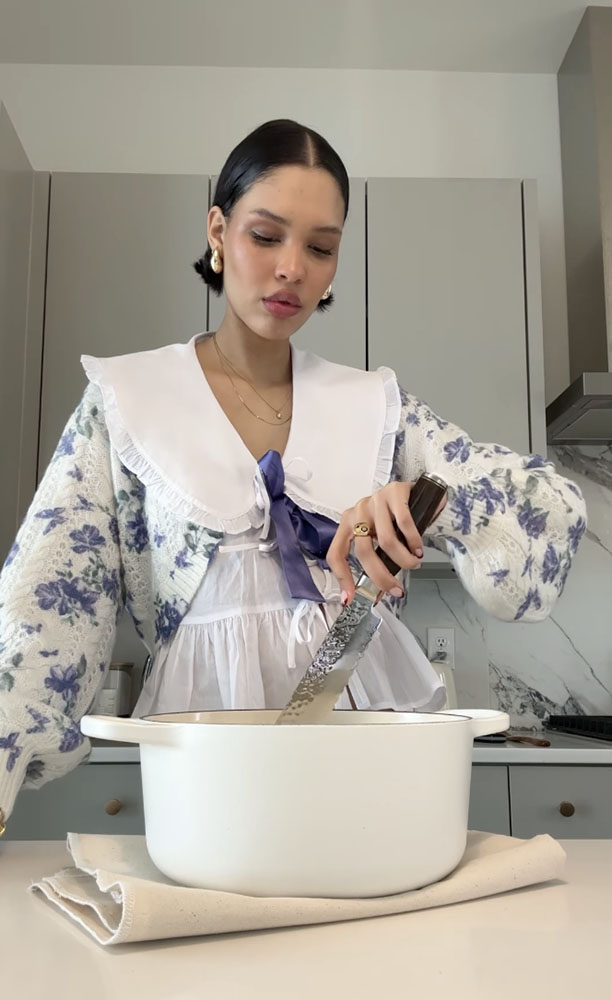Are there Tradwives in Africa?
Are more African women, often seen as traditional homemakers (tradwives) blending cultural roles with entrepreneurship?
I might be late to the party, because apparently this tradwife faze has been gaining momentum for a while now. Isn’t a traditional wife just a glorified stay at home mum, you might ask yourself. (I know I did when I first came upon this phenomena.)
What’s the difference between a traditional wife and a stay at home mum?
Those terms can overlap in some cases but they typically refer to different roles with distinct focuses. A traditional wife is often characterised by fulfilling domestic roles and responsibilities within the marriage. Historically, this role is centered around supporting the husband in his career, managing household chores and maintaining the home. The traditional wife might not necessarily have children, which to me is where the difference comes about. A traditional wife’s primary focus is usually the upkeep of the household and her role as a partner in the marriage.
A stay-at-home mom on the other hand refers specifically to a mother who – out of choice or otherwise – stays at home to care for her children, rather than working outside the home. While she might also take on household duties, her main role is to provide care and nurture for the kids, focusing on their upbringing, education, and emotional needs.
But aren’t these two sets of people just intertwined, crossing paths at one point and basically just the same people?
I know we have stay at home dads, so how come we don’t have “tradhusband” as a thing?
As I went down the rabbit hole of tradwife gore, one thing became clear. Almost All the famous tradwives on the internet are white women. I tried searching for famous African Tradwives and found….nothing. Is it that African women just do what they do without much pomp and celebration because after all it is what is expected of them and they don’t need any titles? I mean, a traditional wife knows their role and doesn’t need to call themselves that. They just are. (If you know of any famous African TradWife, leave their name in the comment section)
Who is the most famous tradwife that comes to mind when you see that name? Nara smith, maybe?
Nara smith is an internet icon, a tik tok sensation that has crossed over to mainstream media. Before she and her partner started being side eyed because of their Mormon beliefs, everyone loved Nara and most wives/ moms got inspired by her. She chooses her outfits immaculately, talks in a super soft, soothing voice that could put you to sleep and has videos of her making food from scratch, something that could never be the reality for most people. From home made cheese to factory candies – literally, there is nothing she cannot make.
Her videos are always perfect with no background noise from her kids or such. A 20 something year old with three kids, Nara makes motherhood and being a wife look easy. Too easy, too perfect. A balance that most (especially us the 9-5’s) find so hard to achieve.
And that’s the thing. Are these famous internet Tradwives real, is that the life they really live, dressed in floral dresses from the 50’s, or are they simply selling a fantasy to the masses. A dream at its best? It’s business as usual to them, isn’t it? Like the American dream that everyone bought, but was only that – a dream?
Who has time to make Oreos from scratch really or handmade ice cream? I’ll tell you what people will do though, they’ll buy her book on recipes or what else she is selling. For the rest of us, we can only manage to dream on.
In the article “Romanticising An Era Where Sexism And Racism Ruled, Michaela Makusha argues that as much as she has a lot of reservation about the tradwife movement, one cannot undermine the role it plays on a family’s finances. She goes on to write that “Perhaps it is a matter of suitability and choice. Certainly, I would never tell anyone how to live, or make their marriage work, and of course, housewives do a lot of legitimate (and heavily under-valued) work. The US Bureau of Labor Statistics stated that to employ all the cooks, cleaners, chauffeurs and nannies needed to meet a housewife’s annual contribution to the home, would cost $120,900 (£62,590).”
Why are most of the Tradwives super vocal on submission? And why is it that in all the articles I have come across on the subject, the comments section is almost always filled with men who happen to be the biggest cheerleaders?
Jessica Grose addresses this in an article she wrote titled “Tradwife content isn’t really for women. It’s for men who want submissive wives.”
I’m sure you have at one point come across videos of tradwife influencers. Wherever you turn, there they are. Their movement truly has been gaining momentum. You might – just like I am most of the time – be scratching your head wondering who they are and why they’re so popular. What are they really about? And what do they stand for?
It’s usually videos of how they cook and clean and take care of their children. Most importantly, it’s them taking care of their husbands, catering to their every wims.
But while stay at home mom content is usually portrayed as imperfect, with kids crying in the background, mom’s not cleaning on time before their husbands are back, tradwife life is about perfection. Their videos are too perfect, too good a life to be true.
In Africa, where cultural values around family and tradition are deeply rooted, the modern tradwife challenges the idea that homemaking is an outdated role and proves that it can coexist harmoniously with entrepreneurial endeavors. Because women here have always been Tradwives. Even when they started getting into employment, they somehow still maintained that lifestyle. For them, it is not a fad, the cool wave of the moment or a trending lifestyle. There is no “bringing back the traditional wife,” in Africa because she literally never left- she’s always been here, quietly holding down her own.
Case in point is Tanzania’s Female president, Mama Samia Suluhu Hassan – third wife to a polygamous man but who still finds time to be a wife and has talked openly about being a submissive one.
Yes, the role of the African woman has always been closely tied to maintaining the home and nurturing the family. And now women are increasingly balancing this traditional role with business ambitions. Women are leading in sectors such as agriculture, fashion, hospitality, health and beauty, often from their homes and using their domestic skills to fuel successful business models.
Are you looking to be a Tradwife, submit to your husband while also becoming a successful entrepreneur but don’t know where to start?
There are numerous online resources that provide guidance on blending homemaking with entrepreneurial ventures.
The African Women’s Development Fund (AWDF)
AWDF focuses on empowering African women by providing financial support and capacity-building for women-led businesses. The organization’s programs offer tools for women to turn their traditional roles into powerful economic ventures.
Women in Business South Africa (WBSA) WBSA offers mentorship, networking, and business development resources for women entrepreneurs. They offer resources specifically tailored to balancing family life with a thriving business.
This online platform provides information, resources and networking opportunities for African women entrepreneurs, especially those looking to break into various sectors while balancing family life.
The Traditional Home Network is an online community where women can share experiences, resources and strategies for balancing homemaking with business. This community helps build a support system for tradwives across the continent.
According to their website, Kenya Women Microfinance Bank PLC (KWFT) is “a Microfinance Bank endeavor to reach the unbankable women in the society giving them an opportunity to gain financial access which for a long time they were not able to gain due to lack collateral.”
They offer an extensive range of tailor-made and affordable products, services and personalized financial solutions to create positive social change.
In Conclusion, there is no “rise of the tradwife in Africa,” the “emerging trend of Tradwives” or any such topics in Africa because such women have always been there and will always be.



